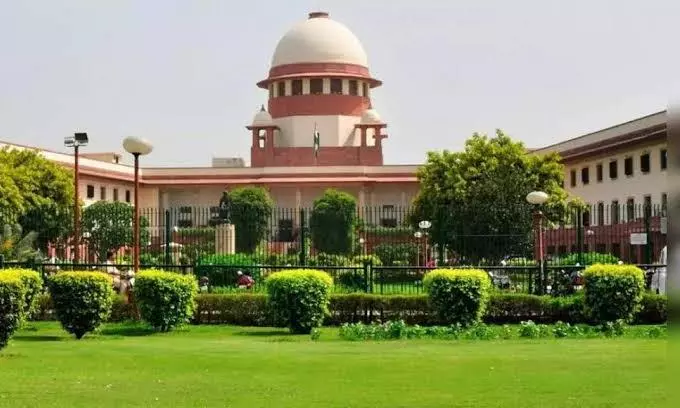Supreme Court Partially Suspends Mumbai College's Dress Code Ban

On Friday, the Supreme Court of India partially stayed a controversial dress code imposed by the N.G. Acharya and D.K. Marathe College in Mumbai. The college, managed by the Chembur Trombay Education Society, had enforced a ban on wearing hijabs, burqas, caps, and naqab on campus, a policy that has sparked significant legal and social debate.
The Supreme Court's intervention came after the PTI reported on the court's observations and the subsequent legal proceedings. A bench comprising Justices Sanjiv Khanna and Sanjay Kumar criticized the college’s decision, stating that educational institutions should not impose restrictions on students' personal choices related to their religious attire. The court remarked on the sudden realization by the college of India's religious diversity, implying that such a ban was both insensitive and unjustified.
The court issued a notice to the Chembur Trombay Education Society, requesting a detailed response by November 18. The bench highlighted that while students' rights to wear hijabs or burqas should be respected, the wearing of burqas inside classrooms was not permissible. The court clarified that no religious activities could be conducted on the campus, reflecting a nuanced stance on the intersection of personal freedom and institutional policies.
During the proceedings, the court questioned the rationale behind the dress code. It noted that if the intent was to prevent the display of religious identities, similar restrictions should apply to other religious symbols, such as 'tilak' and 'bindi'. This line of questioning pointed to the arbitrary nature of the ban and suggested that the policy was selectively enforced.
Senior advocates Colin Gonsalves and Abiha Zaidi, representing the petitioners including Zainab Abdul Qayyum, argued that the ban had serious implications for students, particularly with term exams approaching. They contended that the dress code impeded the students' ability to attend classes and participate fully in their education. The urgency of their plea was underscored by the imminent examination period, which added a layer of pressure to the legal challenge.
Earlier, the Bombay High Court had upheld the college’s dress code decision on June 26, ruling that such rules did not infringe upon the students' fundamental rights. However, the Supreme Court’s recent intervention represents a critical reassessment of the High Court's decision, reflecting broader concerns about religious freedom and institutional authority.
The Supreme Court's interim order highlights the ongoing debate about the balance between institutional regulations and individual rights. It underscores the importance of protecting personal freedoms while maintaining institutional standards. The court’s decision to partially stay the ban and seek further clarification from the college signals a commitment to ensuring that educational policies do not disproportionately affect students' rights.
As the case continues, the Supreme Court's stance will likely shape future discussions on similar issues across educational institutions in India. The outcome will be closely watched by both legal experts and the public, as it addresses key questions about the limits of institutional authority and the protection of religious freedoms within academic settings.

